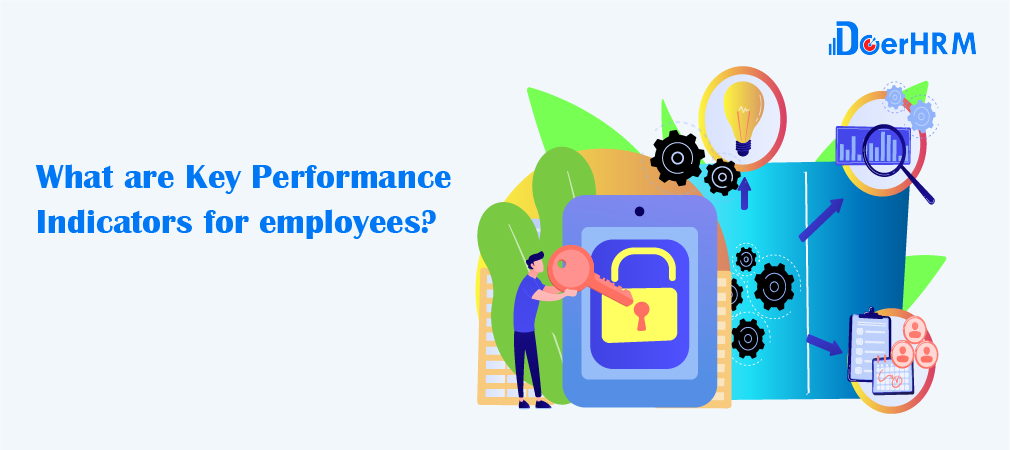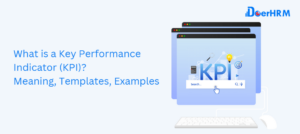It is well-known that when the successful operation of a particular business is concerned, regardless of what industry it belongs to, measuring employee performance can neither be overemphasized nor underestimated. What every manager is to place as a top priority is seeing each employee achieve specific goals at the expected time.
Should there be an iota of laxity from a single team member, this will be potent enough to cause significant retardation, a clog in the wheel of progress to the entire business establishment. If a business manager has given every necessary support, access, and needed resources, to the employees, then it becomes a matter of importance for the same to measure their performances. This means, determining individual and collective productiveness.
However, managing both the daily operations and employee performance can prove to be burdensome. The intricacy of carrying out this brings to mind the importance of a collection of metrics that could be useful as assessment instruments. The Key Performance Indicators (KPIs) for employees are metrics designed to evaluate employee performance concerning specific goals.
The Importance Of Key Performance Indicators (KPIs) For Employees
An employee KPI is only as good as its ability to measure employee performance and to deliver real business outcomes by improving that performance. With the KPI for employees, the manager would be able to relate properly with training that could enhance productivity with members of staff.
Furthermore, KPI for employees will bring great benefits to the entire organization. For instance, having employee KPI can help to create transparency around real efficiency and output. It can also establish realistic goals and metrics for success at individual and company levels and others. When KPI for employees is appropriately engaged, it becomes possible to assess the business state of health, unveiling the possibility of growth and expansion.
More benefit of having a KPI means employees are aware of what outputs or outcomes need to occur to satisfy their employer’s expectations. Should the employee continuously fail to meet their KPI it is recommended the business should actively manage their performance with ongoing training and ultimately performance improvement plans.
Managers also need to adjust constantly to optimise performance in response to ever-changing business circumstances. This will often mean the business will be required to give continuous constructive feedback to employees to communicate the areas that require improvement.
More or less, the businesses’ top-most craving is to see their laid out objectives accomplished, so managers should guarantee that worker execution objectives are meticulously represented.
Important Note About Key Performance Indicators (KPIs) For Employees
As you read this article, it is important to note that Key Performance Indicators (KPIs) for employees are not goals, they only function as metrics with which you can determine what your goals are when you want to achieve them, how you want to achieve them, and monitor your employee’s devotion and/or capacity to achieve them. This will inform you on what steps to take when relating with your employees.
For example, with the Key Performance Indicators (KPIs) for employees, it becomes easier for a manager to identify the class of underperforming members of staff, the manager could as well get a clearer picture of incentive payments such as bonuses.
Common Examples Of Key Performance Indicators (KPI) For Employees
The following are some examples of KPIs used in various industries:
- Increase the number of leads and prospects
- Cost per lead via each channel
- Customer engagement
- Average purchase value
- Number of abandoned shopping carts for an e-commerce website
- Monthly sales quota
- Number of returned items and warranties
- Various sorts of products/services that are utilised on a daily basis
However, the following are KPIs as well:
- Participate in more team meetings and express your opinions
- Produce more work on a timely and efficient basis
- Complete advanced technical training to update skills
- Develop and practise coaching skills to allow direct reports to perform at greater levels
- Provide high-quality customer service
Implement Key Performance Indicators (KPIs) For Your Employees
KPIs help employees to sharpen what in particular is required from them from their managers. This mindfulness makes workers fit for fulfilling their managers’ assumptions and conveyance. Should the employee fall short of the KPI, then the need for training and retraining becomes more obvious if the set goals must be met. With the use of KPIs for employees, it becomes easier to identify and isolate problems that could endanger the business in its operational sense.
All in all, you should observe that KPI for employees is never intended to be utilized for the general examination of representatives in disengagement. Disregarding different measurements which are not in the classification of efficiency, as KPI for employees is just spotlights on usefulness and your representatives can’t simply be esteemed just given their efficiency.






